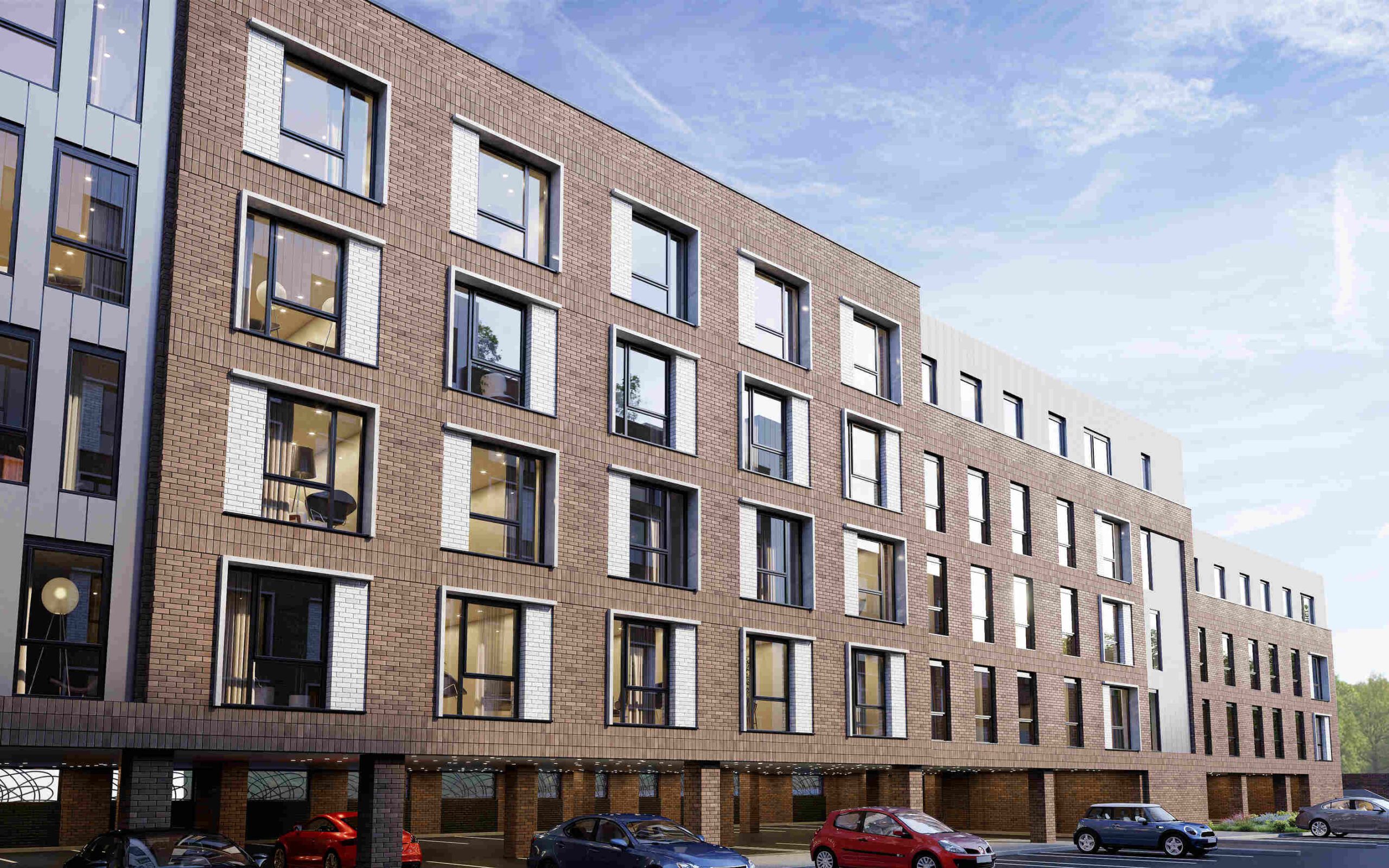
How to Invest in Student Property in 2023/24
Interested in student property investment in the UK? Sign up to our mailing list to receive the latest student buy to let deals available.
Discover The Best Ways to Invest in Student Accommodation
Looking to find out how to invest in student property or how to invest in student accommodation in 2023/24?
You’ve come to the right place.
In this guide, you will learn about the two most popular ways you can start investing in student property today.
You will learn:
- What is an HMO?
- What is Purpose-Built Student Accommodation?
- Pitfalls of Investing in Student Accommodation
- The Pros and Cons of Student Property Investment
- If this sounds good to you, then keep reading to learn more.
This guide is one of seven blogs in our student property investment series.
Only £30,000 Deposit Required
15% deposit secured for next 10 units only!


How to Invest in Student Property UK? (Two Ways)
Student property investment is currently one of the most popular ways to invest in real estate.
With over 2.4 million students in the UK, according to UCAS, and a further 500,000 students coming to the UK by 2030, the market is primed for real estate investment.
With a record number of UCAS student applicants in 2020/2021 and a stunning 88% of students living in student accommodation, according to the National Student Accommodation Survey, now is one of the best times to invest in student buy-to-let.
Prices for student property tend to be far lower than traditional residential property due to smaller sizes, making rental yields some of the highest available in the UK.
It’s clear that investing in student accommodation is a good idea, but how can you invest in student property to take advantage of this huge market?
Well, there are currently two popular ways to start buying student property investments today.
They are:
- HMOs.
- Purpose-Built Student Accommodation.
- Let’s look at both in detail so you can see exactly which student property investment is right for you.
Lock in our 15% Deposit Deal Today
Save around £40,000 on your deposit with our exclusive 15% deposit offer valid on the next 10 units only.


1. What Is an HMO?
An HMO, otherwise known as a house in multiple occupations or a multi-let, is a property that is tenanted by three or more people who are not related.
In the property, facilities such as bathrooms or kitchens are typically shared between tenants, but they will have their own bedrooms.
Generally, HMOs can offer rental yields far higher than other buy-to-let property types, with low prices and high rental income opportunities from multiple tenants.
The flexibility of multi-let house shares is ideal for students, with most second, third, and final-year students being able to share the financial load of living away from home for the first time with their friends.
However, while the opportunity to earn high income sounds attractive, there are some serious drawbacks to HMO investments that investors need to know about before investing.The Problem With HMO Investments
Unfortunately, HMO investments aren’t what they used to be.
Previously, HMOs were comfortably the most popular way to get into student property investment.
However, there has been a culture change amongst students. Now, students are looking for more attractive, higher-quality living spaces with ‘cool’ amenities like onsite gyms and cinemas.
HMOs simply cannot meet this demand, with most HMOs based in older properties due to their size.
Aside from this culture change making HMO investments less viable, there’s also the learning curve attached, which is what we will discuss in the next section.
How to Invest in HMO Student Investments
HMOs are complicated, especially for beginner investors.
This is because there is a tonne of strict legislation surrounding HMOs on both a national and local level.
You will need licences to operate and convert HMOs, and you also have extra responsibilities to protect your tenants as per The Licensing of Houses in Multiple Occupation Order 2018.
For each local authority, there may be differences in how HMOs are defined, different licensing requirements, and even different planning regulations.
So, how can you find out how to license an HMO and see if you’re meeting the legislation required?
Well, while there is a tonne of legislation in place, there is a simple answer: Speak to the local council, or specifically the local HMO officer.
By doing this, you can find out how to meet the local authorities’ rules on fire safety, room sizes, window fittings, and the number of bedrooms you need in an HMO.
What Are The Pros and Cons of HMO Investments?
Pros:
Investors can earn higher rental yields with more tenants paying rent, which means higher returns for investors.
Void periods are less impactful as if a tenant leaves; there will be other tenants able to pay.
Rental arrears are less impactful as if one tenant defaults on their payments; other tenants will still pay.
Cons:
Strict legislation means HMO investment can be incredibly confusing.
When it comes to selling, investors may struggle, as likely the only buyers will be other investors. This lowers the amount of capital growth potential on the property.
In 2022, there is less demand for HMO properties from students, who now want higher-quality properties.
Difficult to secure mortgages.
Higher running costs for HMOs, as they are subject to more wear and tear due to being older properties.
Higher start-up costs than traditional buy-to-let properties, as you will need to buy more furniture and meet more health and safety regulations.
Fewer property management companies will be willing to manage the property, which means you may have to self-manage the property.
Completed, Furnished 2-Bed Apartment in Prime L1
We are now welcoming offers on this city centre property in a previously sold-out development. Get in touch and get your offer in.


2. What Is Purpose-Built Student Accommodation?
Purpose-built student accommodation is property that has been built specifically for students.
This means they are often equipped with modern necessities for students, which ranges from Wi-Fi, working spaces, and security, all the way to onsite gyms and cinema rooms.
Here in the UK, there are two common types of PBSA.
They are:
- Cluster flats that have private kitchens but shared living spaces.
- Halls of residence that feature multiple bedrooms but shared kitchens and dining areas
Why Should You Invest in Student Accommodation?
Over the last year or so, PBSA has exploded in popularity amongst investors, with cluster flats and premium living spaces, in particular, on the rise.
In 2020, despite the obvious economic pressures caused by the global Covid-19 pandemic, there was more purpose-built student accommodation investment than ever before.
A report from Savills found that £5.77 billion was spent in the sector in 2020, which is 5.7% higher than 2019 and 0.8% higher than the previous record.
While those living in student accommodation fell from 98% in the academic year 2019/20 to 88% in 2020/21 – a symptom of students moving back home during lockdown – these numbers are likely to bounce back.
UCAS has reported that there has been an 8.4% increase in applications, stemming from a 17.1% rise in foreign applications from non-EU countries.
This rise in foreign applications is particularly interesting and poses a huge opportunity for investors.
According to UCAS, 130,000 university applications in 2021 came from Chinese students, who are around 2.2 times more likely to live in PBSA.
There’s already a huge divide between available beds and full-time students, with full-time students currently outweighing PBSA by 3:1.
Crucially, universities own about 69% of the UK’s purpose-built student accommodation, which is noteworthy as universities are relying on the private sector to help deal with this rising demand for quality housing.
With such a high level of students entering the UK, PBSA investments in cities like Liverpool and Manchester currently rank as the best.
This is because both cities offer some of the highest levels of Chinese students in the UK. In fact, at the University of Liverpool, around one in five students are Chinese, thanks to the city’s long-standing history with China.
If you want to learn more about the best places to invest in student accommodation, be sure to check out our free guide.
Or, if you’re more interested in checking out specific cities like student property investment in Liverpool or student property investment in Manchester, you can check out our area guides for them.
Just click the links to read for free!
How to Invest in Student Accommodation With RWinvest
If you’re wondering how to invest in student accommodation, then RWinvest is the perfect company for you.
We have several fantastic purpose-built student accommodation investments for sale, with huge NET returns available up to 8%.
With prices as low as just £59,995, too, you can secure one of the most affordable asset classes in UK real estate.
To see the latest student accommodation investments for sale, then click the link to see our opportunities.
What Are the Pros and Pitfalls of Investing in Student Accommodation?
Pros:
PBSA is far more affordable than traditional buy-to-let, with starting prices often below £100k.
If you purchase new build student properties from investment companies, you will often get assured rental yields for a set number of years.
Due to luxury onsite facilities like gyms and cinema rooms, rental income is high in PBSA.
Thanks to highly affordable property prices and high rent, rental yields tend to be incredibly high for student properties, with returns around 8% or more.
Huge demand for PBSA, with full-time students outweighing available rooms by 3:1.
It can be a completely hands-off investment, with a dedicated student accommodation management company usually provided specifically for the development.
With student property investment, you can earn income through both rent and capital appreciation.
Cons:
Capital appreciation tends to be less than traditional buy-to-let property.
Small resale market, as those looking to buy student accommodation will be other investors.
£152k Required on Luxury 3-Bed Penthouse
14th floor 3-bed apartment with HUGE assured NET rental income and spa access.
Who Is RWinvest?
If you’re interested in student property, RWinvest should be your go-to investment company.
But who are we and why should you invest with us?
- RWinvest is a property investment company with over 17 years of experience specialising in student property investment.
- We have helped over 75,000 investors make the investments of their dreams.
- We were named the North West’s Best Property Business in 2020 and were nominated as Business of the Year in the Echo Regional Business Awards 2021.
- RWinvest offers exclusive investment opportunities and deals you won’t find anywhere else.
Contact us today to start your UK student property investment journey from only £59,995.


Contact Us
Want to Get in Touch?
Fill in the form to contact us today and a member of our award-winning property team will be in touch to help.




